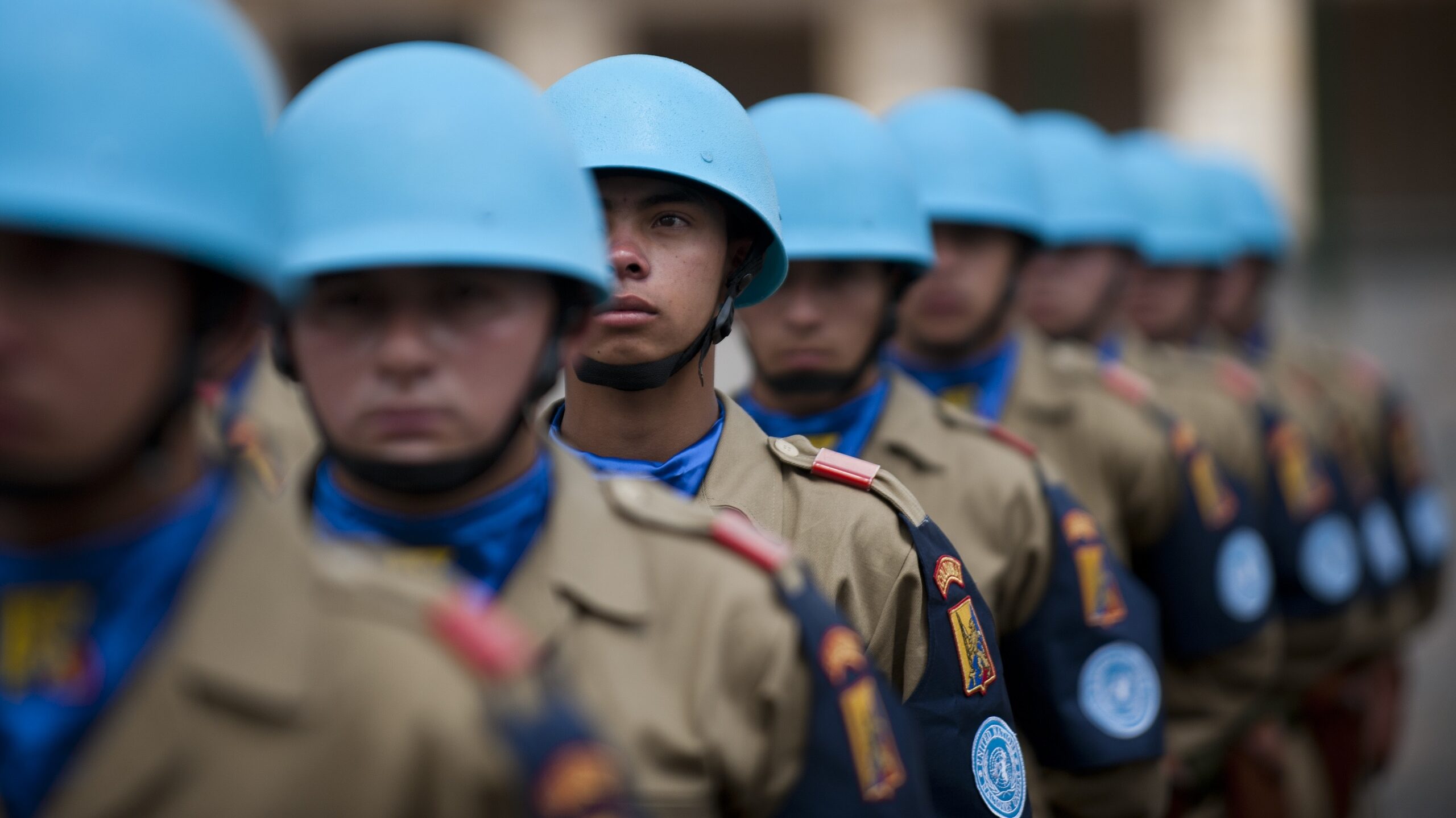Colombian Soldiers Have Protected Israel-Egypt Peace at the Border for More Than 40 Years
The Media Line speaks with the Colombian ambassador to Israel about the history and future of the nearly 300 Colombian peacekeeping troops guarding the Sinai Peninsula
In the 10th episode of The Media Line’s Spanish-language podcast, Medio Oriente 123, host Debbie Mohnblatt is joined by Colombian Ambassador to Israel Margarita E. Manjarrez Herrera.
For over 40 years, the Colombian Infantry Battalion No. 3 has served as a peacekeeping force in Sinai to uphold the peace between Israel and Egypt. The battalion is part of the Multinational Force and Observers (MFO), a group of soldiers from 13 countries devoted to maintaining the peace.
Israel and Egypt, once sworn enemies who fought in multiple wars, signed a peace agreement in 1979 in Camp David, Maryland. The negotiations were mediated by US President Jimmy Carter and signed by Israeli Prime Minister Menachem Begin and Egyptian President Anwar Sadat. The agreement was the first peace treaty between Israel and an Arab country. Peace between Egypt and Israel has lasted more than 40 years.
Colombian Ambassador to Israel Margarita E. Manjarrez Herrera told The Media Line that the MFO was created after the UN Security Council denied a request for UN peacekeeping forces.
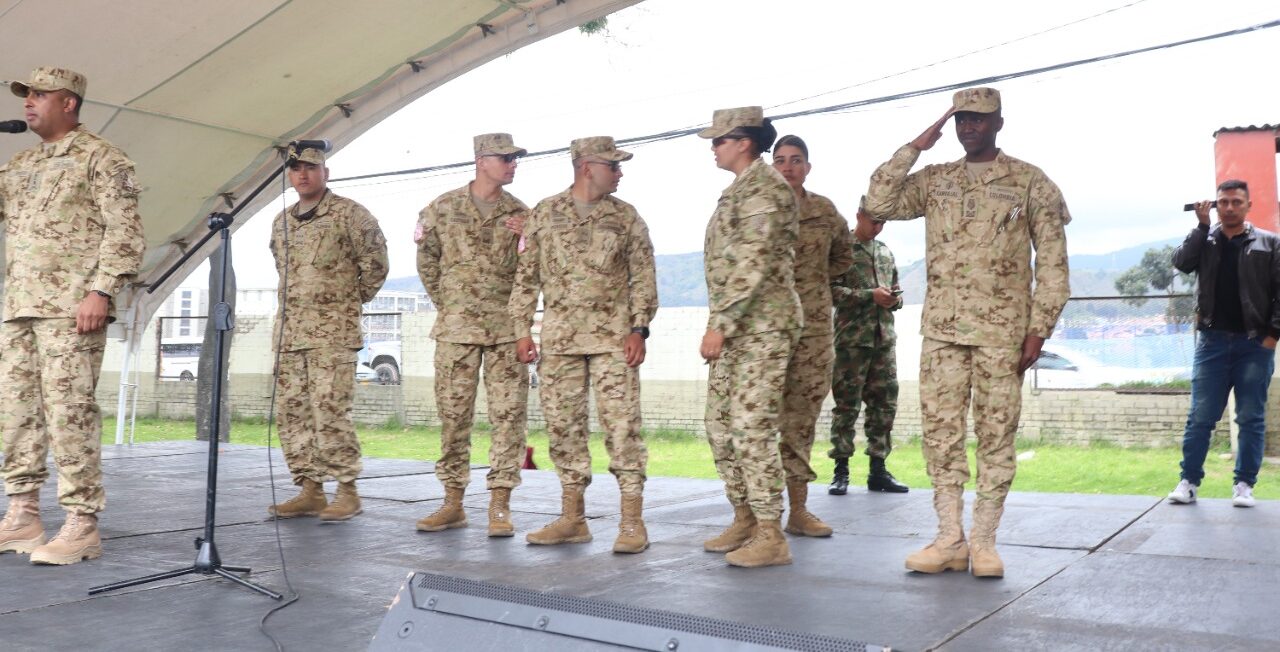
(Courtesy Sgt. Maj. Duverney Carvajal)
The security council “instead decided to negotiate an additional protocol in 1981, in which this multinational force of peace and observation [was] established as an alternative to that force that the UN could not send at that time,” Manjarrez Herrera said. She described the main responsibilities of the MFO as observing, verifying that the treaty is being maintained, and reporting any treaty violations.
Twenty-one countries support the MFO either financially or with troops. In addition to Colombia, countries that have troops in the MFO include the US, Japan, Australia, and Uruguay.
After the US, Colombia has the largest contingent in the MFO, with 275 troops, making up nearly a quarter of the 1164 military personnel in the force.
Manjarrez Herrera attributed Colombia’s outsized presence in the MFO to several factors.
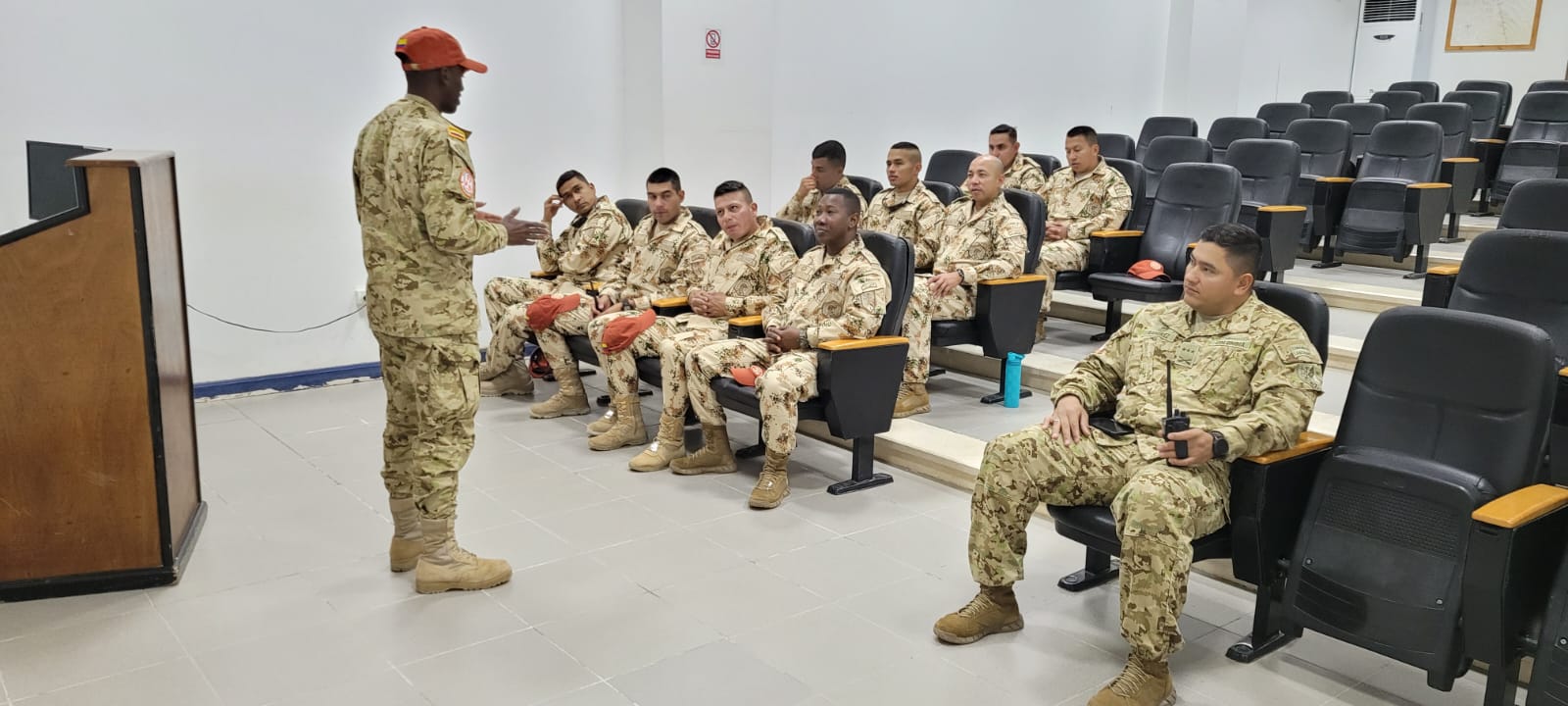
(Courtesy Sgt. Maj. Duverney Carvajal)
She explained that the Colombian military has experience with peacekeeping due to the decades-long internal conflicts that the country has faced.
“Our country has, unfortunately, a conflict that lasted 50 years until the peace agreements were signed with [the Marxist-Leninist guerilla group known as the FARC] under the government of President Juan Manuel Santos in 2016, which is still in the implementation phase,” she said.
Give the gift of hope
We practice what we preach:
accurate, fearless journalism. But we can't do it alone.
- On the ground in Gaza, Syria, Israel, Egypt, Pakistan, and more
- Our program trained more than 100 journalists
- Calling out fake news and reporting real facts
- On the ground in Gaza, Syria, Israel, Egypt, Pakistan, and more
- Our program trained more than 100 journalists
- Calling out fake news and reporting real facts
Join us.
Support The Media Line. Save democracy.


Because of this history, Manjarrez Herrera said, “the military of Colombia is internationally recognized for its expertise and its capacities.”
Sgt. Maj. Duverney Carvajal, who is currently serving in the Colombian Battalion in Sinai, told The Media Line that soldiers from other countries recognize the experience that Colombian soldiers hold.
“There is admiration toward the Colombian soldiers because they come from a conflict that has lasted more than 50 years and have experienced it themselves. The Colombian soldier is in continuous training and knows how to respond to a wide range of situations,” he said.
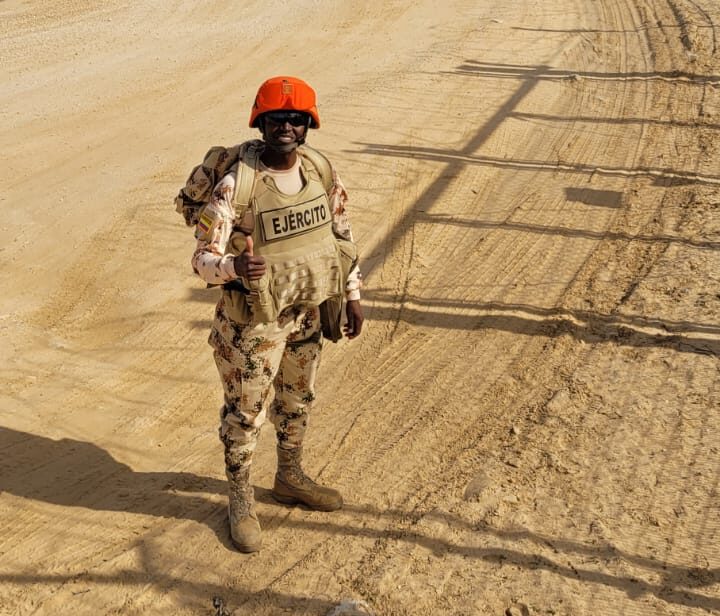
(Courtesy Sgt. Maj. Duverney Carvajal)
Beyond Colombia’s experience with internal conflict, the country has also participated in numerous other international peacekeeping missions, Manjarrez Herrera said. She mentioned missions in Korea, Haiti, the Suez Canal, West Africa, and Central America.
Manjarrez Herrera said that Colombia participates in peacekeeping missions as an expression of the country’s principles, which include cooperation, respect for international law, and peace.
“We believe that peace is a goal both for Colombia itself and on an international level,” she said, noting that participating in peacekeeping missions also improves Colombia’s geopolitical status.
Participating in the MFO in particular allows Colombia to strengthen its relationships with Egypt and Israel.
“It allows us to develop bilateral dialogue and additional channels with both Egypt and Israel. We are continuously invited to reunions and conferences that have to do with these particular subjects,” she said. A close relationship with Israel lets the Colombian military benefit from Israeli technological developments as well.
Our soldiers gain training and experience in coordination of joint missions, military exercises, discipline, and compromise
Colombia’s military also benefits from peacekeeping missions through military personnel development, Manjarrez Herrera said.
“Our soldiers gain training and experience in coordination of joint missions, military exercises, discipline, and compromise,” she said. “All that gaining and experience is later reinvested in our army and our country.”
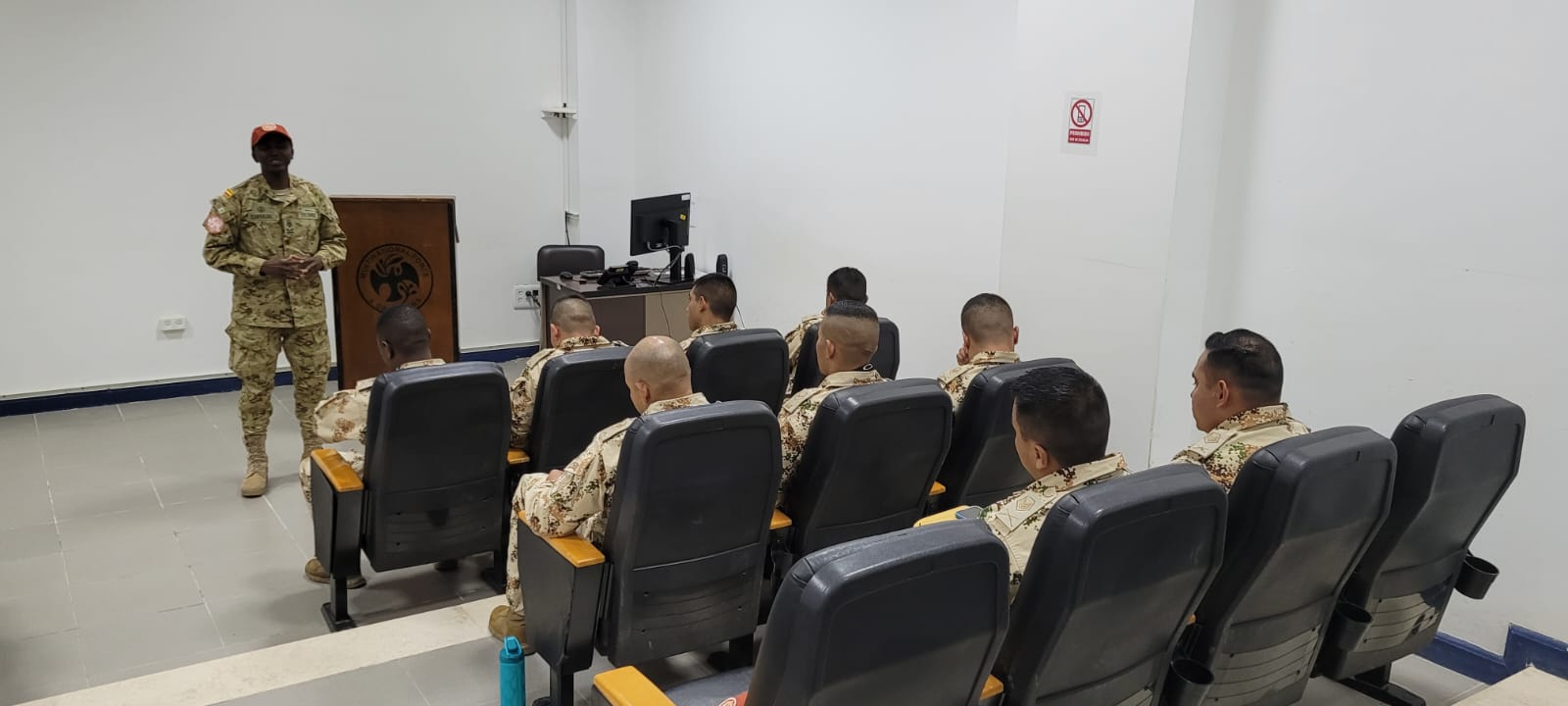
(Courtesy Sgt. Maj. Duverney Carvajal)
In addition to the military experience, she noted that the soldiers serving in the MFO get to learn new languages and participate in cultural, recreational, and educational activities that enrich their knowledge.
For Colombia as a country, she said, it “is good to have military forces that know the world, other armies, and other languages.”
It is a very big honor and achievement to serve in the Colombian battalion in the Sinai and perform this important mission of supervising that the Camp David peace agreement is kept
According to Sgt. Maj. Carvajal, the selection process to serve in the MFO is very selective, and getting to serve is a source of pride.
“It is a very big honor and achievement to serve in the Colombian battalion in the Sinai and perform this important mission of supervising that the Camp David peace agreement is kept,” he said.
